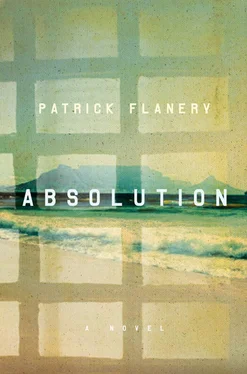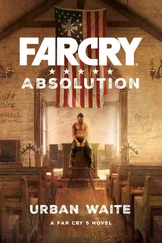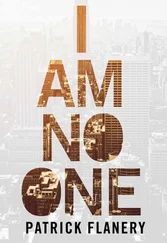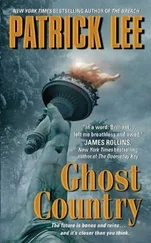‘A memorial. Yes, I think it is a very nice way to think of them,’ Clare said. ‘One fitting for a gardener, always needing renewal.’
When Clare returned indoors, she found Mark in the kitchen, drinking his milky coffee and reading the Mail & Guardian .
‘Have you had time to consider?’ Clare asked. ‘Have you reached a decision, or can you only offer absolution from the instance?’
‘No pleasantries this morning, Mother?’
‘You leave me to sleep on my confession and refuse to pass sentence. I have not slept. I could not sleep, in expectation of what you might say. I have been swimming to try to do something with my nervous energy and my anxiety of anticipation. Don’t make me wait any longer. Tell me if what I did deserves amnesty, if it truly had political motivation, or if you think I did it out of nothing more than personal spite. That is all I am asking, for your opinion.’
Mark closed the newspaper and folded it in half, so that the masthead remained visible. The front-page story was an investigation of government corruption, of backroom deals and nepotism and fraud in the ruling party, of police payoffs and arms deals and trafficking and the silencing of dissent. Smoke and fire, Clare thought, there is far too much smoke. She sat across from Mark at the breakfast table and tried to draw his eyes to hers as he looked down at the paper, at his coffee cup and pale hands, avoiding her gaze. He drank, slurping his coffee, exhaling and inhaling, and exhaling again so loudly that the exhalation could only be called a sigh. He had condescended to play Clare’s game; it struck her as unfair that he should now begrudge fulfilling his role, which would see the process to its necessary conclusion.
‘You want to know my opinion. This is only the verdict of this court, as you clearly like to imagine it. I don’t say that I’m the final authority or that I have any particular moral authority in this case. I feel, perhaps, that I should recuse myself because of my involvement with you, the defendant, and with the victims, although I have no memory of the latter and nothing that I recognize as strong feeling for them. Possibly, though, a small part of me even now wishes that I had been given the chance to know them, and wishes that they had also been given the chance to change, to show themselves more than and less than what you and others thought of them. Change, as you would yourself admit, Mother, is not impossible. The crime you committed — betraying the location of two people whose lives held a symbolic value in this country at the time — is not clear to me. That is to say, it is not clear to me that there is a definite connection between what you said and what happened. We would have to prove that someone — perhaps the man you suspected of being an MK cadre — had reported the information to someone else, perhaps Mr Dlamini, the man who was found guilty and sentenced to death for carrying out the assassinations. Without being able to determine that, I cannot reach a verdict. Let us assume, though, for the sake of this artificial process, that you were responsible in some way, directly or indirectly, which leaves the question of whether your motivation was political or personal — the one being excusable, under the rubric of amnesty that briefly held sway in this country, the other being merely criminal. What I must decide is whether you’ve proved that your motivation was political. My immediate feeling is that you have not. You were not a member of the ANC or the Communist Party, and certainly not of MK,’ he snorted. ‘You couldn’t even bring yourself to become a member of the Black Sash. You were taking orders from no one, so I fail to see how your action was political.’
‘I was a member of the Progressive Party. Give me that at least.’
‘Fine. You belonged to a political party that was a small voice of opposition, but your primary concern, as you yourself have made clear, was personal. You feared I would be taken away from you. Your secondary motivation was even more personal: the selfish wish to appear useful to people you respected and feared. Perhaps you now rationalize this as political intent, but in truth it was not. You sat behind your desk and removed yourself from conflict and gossiped with friends and fellow travellers. You might have attended meetings in the early Sixties, but by the second half of the decade you were retreating ever further into your work and your teaching. Don’t deny it.’
‘I suppose I cannot, if you put it that way.’
‘So if your crime was not political, then amnesty is not possible. Assuming you are guilty of what you suspect, you are a mere criminal in the eyes of the law, and should be treated as such.’
‘And what does that mean?’
‘It means nothing. Because you are guilty of nothing. Loose lips sink ships. You spoke when you should have had better sense, but you didn’t pull the trigger. You did not plan the killings. You are not even an accomplice. You have overplayed your role in history, Mother, and I suggest you do nothing else but get over it. I should find you in contempt for wasting the court’s time and let them put you in irons and send you down. Perhaps a little punishment would silence your mind.’
‘You make me out to be just some cloistered housewife, peddling words. Nothing but a paper tiger in a paper cage.’
‘You’ve sentenced yourself to your own imprisonment, Mother.’ Mark stuffed the newspaper in his attaché and clicked it shut, scrambled the twin combination locks on the case, and straightened his tie. ‘You never needed me in the first place.’
Clare spent the rest of the morning trying to read but found it easier to plot other plantings of tulips with Adam than to focus her mind on words. Words were too prone to suggest other words, and in reading an innocuous sentence like ‘the fish leapt from the lake and turned in mid-air, catching the light as the gemsbok charged into the water’, Clare’s mind could drift to memories of herself as a child, and her sister as a teenager, and, once again, the cake emerging from the pantry, crowned with shit, the accusation that followed, the whole history of their lives as sisters. Tulips and weeding, the silence of garden work with a man she had come to understand a little and trust a bit more — it was an easier way to make the day pass as she waited for her son’s inevitable return.
At least, she assumed it was inevitable. She checked the guest room and found his suitcase was still there, his clothes in the closet. He had left the house after breakfast, and she expected he would be coming back for dinner, although he had given no indication of his plans. But for the suitcase, she might have assumed he had already returned to Johannesburg, to the wife who disliked Clare and the grandchildren she never saw.
As evening came, and still with no word from Mark, she put her defrosted dinner in the oven and watched the news while the nut loaf baked. Taxi drivers, irate that their monopoly should be challenged, had opened fire with automatic weapons on a city bus full of morning commuters coming from the townships; three were dead, scores injured. This was not what was supposed to happen, not how things were intended to work out after all the decades of darkness, but Clare could no longer force herself to feign surprise. Surprise and outrage were taxing emotions. It was easier and less exhausting to resign oneself to the state of things and hope to live out the full span of one’s natural life as little disturbed by the world as might be possible.
Following the news were the soaps and, after discovering that Zinzi and Frikkie were going to be married against the protestations of their two families, Clare began to feel herself nodding off. She made a cup of coffee and lowered the blinds in the kitchen, so that Donald Thacker, his kitchen windows open and lights on next door, could not look in on her. He had taken to waving from his own windows when he caught sight of Clare in hers. It was an intrusion too far, to be hailed like that as one went about one’s evening.
Читать дальше












